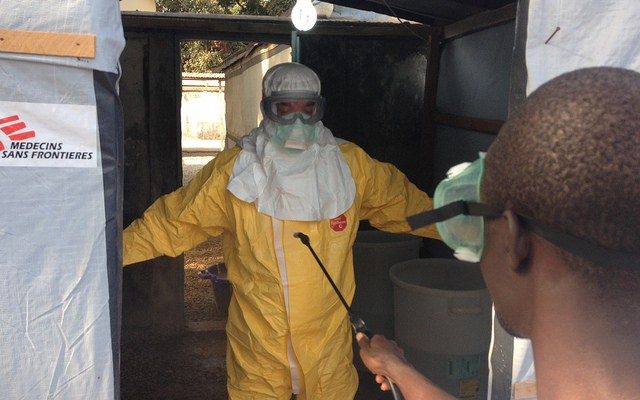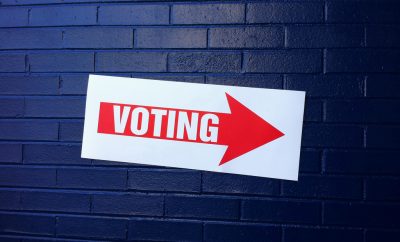 Image courtesy of [European Commission DG ECHO/EC/ECHO via Flickr]
Image courtesy of [European Commission DG ECHO/EC/ECHO via Flickr]
News
Keep Calm and Carry On: You Don’t Have Ebola
It seems like all anyone can talk about anymore is Ebola. Especially now that the first case of Ebola has been found in the United States, in Dallas, and the first case transmitted outside Africa reported in Madrid, people seem to be freaking out. One big concern has been that Ebola is going to become an issue in the U.S., which I just want to start by saying is unfounded and unrealistic. The public health infrastructure in the U.S., as well as our ability to isolate the disease make it incredibly unlikely that it becomes an epidemic. You’re still significantly more likely to die of the flu, or a car accident than even go near someone who has Ebola. As of press time, Thomas Eric Duncan — the man in Dallas who had contracted Ebola — has passed away of the disease, and while our thoughts and sympathy are with his family, this development does not change the risk factors in the U.S.
People are losing their minds over it. Seriously, check out #EbolaQandA on Twitter. It makes me terrified — not of Ebola, but at the extent to which our American education system appears to have failed people when it comes to very, very basic concepts of health and geography. Now Ebola is an incredibly important world issue right now, and combating it absolutely deserves our attention, vigilance, and support. That being said, we all need to take a deep breath over here in the U.S., and stop listening to misinformation and conspiracy theories, because this is getting silly. Here’s a helpful flowchart for anyone who’s concerned about the spread of Ebola in America.
Worried about Ebola? Here's a flowchart just for you! #diseases #outbreak #EbolaOutbreak #notenoughwine pic.twitter.com/U6uvQd8MKf
— Melody Butler (@MelodyButler) August 2, 2014
There have been many proposals to try to keep the United States from having Ebola-infected people cross over our borders. One of the most extreme is a “travel ban” aimed at West African countries with high infection rates.
This sounds like a good idea in theory, it really does. But in reality, it’s not something the U.S. will do, or should do. First of all, the best way to make sure that the United States does not experience problems with Ebola is to stop the epidemic. And if we restrict our access and communication with the affected region, it’s just going to get worse. When there’s not a huge risk of Ebola reaching any sort of epidemic levels in the United States, it doesn’t make sense to impede our relief efforts with a ban. A travel ban could mean that relief workers have a harder time going in, or refuse to go at all because they worry that they might not be able to get back.
Also, instituting a travel ban could make it more likely that someone with a case of Ebola makes it into the U.S. If we have a ban in place for countries heavily infected like Sierra Leone, Guinea, and Liberia, people are going to find a way around it. They could go to Senegal, or any other nearby nation where travel is not restricted. Because of the ban they may be incentivized to lie about whether or not they’ve been in contact with an infected person in hopes of not being prevented from getting on a plane. Right now we’re able to track people and examine them at the airport and upon arrival, and we’re going to strengthen our tools for that. We shouldn’t incentivize anything that makes it harder for us to do that.
I’m not an expert in public health; I don’t know what will happen with this epidemic. But what I do know is that panicking is going to do nothing. Educate yourself. Donate to the relief effort. Don’t feed the frenzy. This crisis needs a pragmatic approach, not a reactionary one.








Comments